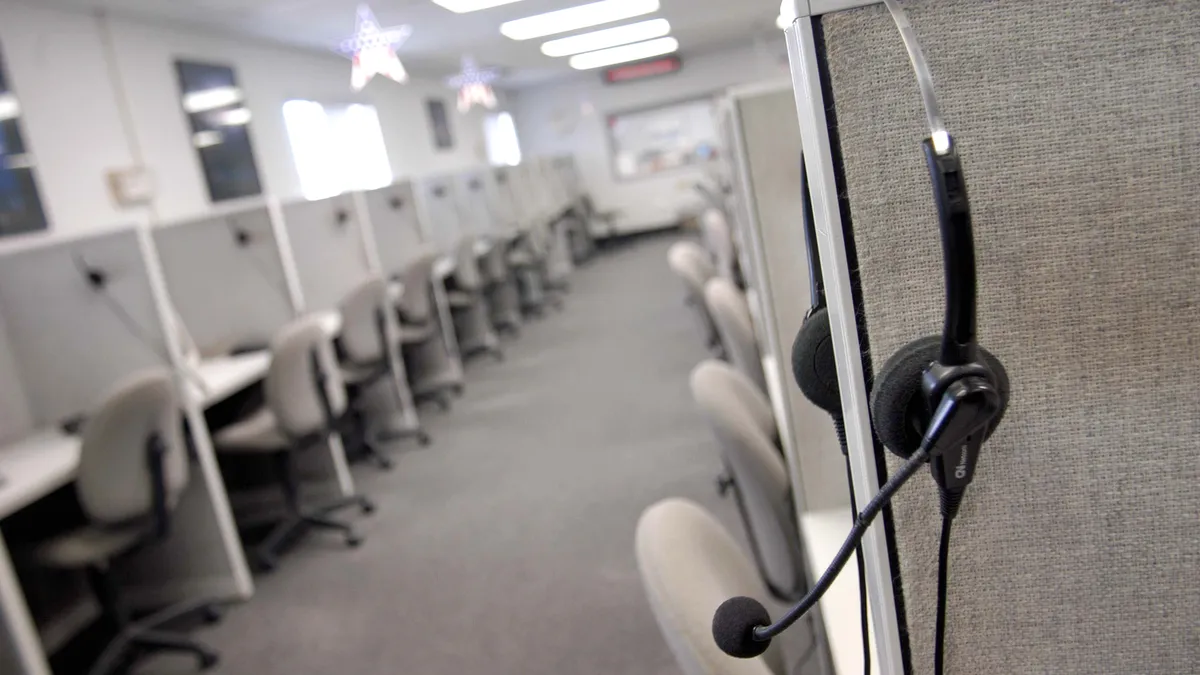Wharton School professor G. Richard Shell's latest book was born from suffering. "The Conscience Code," released on June 8, 2021, came about from the uncomfortable stories Shell's students brought to the table in his course. Ten years ago, as the professor of legal studies & business ethics and management helped redesign Wharton's MBA curriculum, he spearheaded a business responsibility course.
"I was exposed to lots of traumas that my MBA students, coming out of their jobs between [undergraduate] college and MBA, had experienced in the workplace," Shell told HR Dive. "Office bullying, sexual harassment, sexual assault. Pressure from bosses and peers to fudge data on reports for clients or to abuse billable hours."
Warning his students about these behaviors, Shell realized, wasn't enough. "Because their peers were sitting there, talking about it having already happened to them," he said. He recalled an "implicit pleading" from the students, as he was the one educating them on business responsibility.
"'What can we do? What's an effective way of responding or pushing back? Of trying to implement the values we actually believe in, that workplaces may distort and ask us to violate?'" Shell said. "'The Conscience Code' is my answer: a practical, down-to-earth way of thinking about these things. And then what to do about them."
Prior to his 2021, Shell has written a number of books, including "Bargaining for Advantage: Negotiation Strategies for Reasonable People." In an interview with HR Dive, Shell offered ways to change workplace conversations, as well as conflict resolution tips. The conversation below has been edited and condensed for clarity.
HR DIVE: Tell me a bit about your thought process in putting "The Conscience Code together."
G. RICHARD SHELL: The actual occasion that sparked this for me was a woman speaking in class one day. She had a dream job out of college in the fashion industry. About a year into it, she was at a client dinner. The client put his hand on her knee with about six people at the table. She just brushed it off and tried to sit up straight. But his hand went right back to where it had been.
So then she got up and walked to the restroom — figured breaking the action would take care of it. Came back, sat down, and he did it a third time. She sort of made an excuse to switch seats with somebody and she got away from the guy. She felt that that's an assault, when you're touched that way by somebody. And she was pretty clear that she didn't like what was going on and she wasn't gonna do anything to respond to it positively.
But her question in class was, 'So what should I have done?'
She ultimately left the industry a couple of years later and then ended up at the Wharton School to change her career to something else. So much for the fashion industry. But the question lingered in my mind. What is the way that someone in her position could at least take action?
'The Conscience Code' is a practical way for people on frontlines — HR is an important part of that — to bring the right remedies to bear so that employees feel protected and safe.
What your student went through is absolutely horrible and I know she is far from alone. I think it's important that you're able to create a toolkit for people in these damaging uncomfortable situations. Touching on what you said about HR professionals' role to play: What are some ways HR professionals can help put people at ease?
The book really advocates for a change in vocabulary, because the usual way of characterizing [employees experiencing strife] is to call them a 'whistleblower.' I find that an alarming use of corporate labeling. As soon as you think, 'Well, I have to be a whistleblower or not,' it's pretty easy to think, 'Well, maybe not.'
Because whistleblowers are, you know, basically seen as disloyal. Also, courageous and ready to step off a cliff, and there's a lot of connotations about being loud and aggressive.
I think the proper phrase is 'a person of conscience.' We all have role models who are people of conscience. They may be in our families and may be in our communities. Hopefully, they're at work, too. You know when there's a tough values question, you can count on them to speak up and say something that's going to be supportive of the values.
Combine that with skill managing conflict and organizational politics, you have someone who's an effective person of conscience. They're able to be a force for good.
It's hard to be a person of conscience and a force for good in an organization, but no one is better placed to role-model that than the HR professionals.
How should HR professionals let employees know that the door is open, so to speak, especially when we're in a hybrid workplace? Where few people are face-to-face and few can see a physical door open?
I think people glaze over when you say, 'We're gonna have a meeting about ethical culture.' And that's the usual frame within which HR professionals address these questions. Talk about something like, 'What does it mean to be a person of conscience in our company?' Introduce a new set of words that will wake people up to the connection between maybe their spiritual community and their work. The way they raised their children and the workplace.
Starting with the HR department, have a discussion about what's the most effective way to promote a speak up culture where people are going to feel safe. What are the anxieties that people feel about speaking up? What are ways we can ameliorate those anxieties?
This is not news, but one of the most important features is anonymity. Can HR credibly say they will protect the identity of someone who's going to share information?
Where the credibility is lacking: How do we rebuild the trust, so that people actually feel that HR is responsive enough and a safe place to go? Trust is a renewable asset, renewable energy. You can't just say, 'OK, we're gonna trust now. Let's go off and do something else.'
Especially in the pandemic or coming out of the pandemic, where trust is eroded by remote work and people don't have the same relationships as they did. Trust is something you have to work on every day.
This conversation is coming at an especially interesting time, as many of us are re-entering the workplace for the first time in a year. I think that, just like with everything else, people have to figure out how to be in community with other humans again.
A good way to frame it is: As we come back to the office, how do we bring our conscience back to work?
Going back to your anecdote about sexual assault, I think trust is integral when you're reporting something close to the heart like that. On the topic of sexual assault, I'm thinking about how it's not always cut-and-dry, but that is a form of gender-based violence. So, I'm curious: How does the idea of a toxic workplace intersect with identity, whether that's your gender, sexuality, race, ability, or veteran status?
Toxic workplace is an interesting term. [Typically,] when we use it, we think, 'This is like a rotting apple. Everything in it stinks.' Actually, everybody kind of occupies a workplace where for some, it's toxic, and for others, it's just another place to work.
And then, of course, there's some people for whom creating the toxic workplace is their day-to-day job. But they don't experience it as toxic at all. They're totally oblivious to it, or they couldn't care less.
I characterize a toxic workplace as a place where someone goes to work, and their dominant emotion is anxiety. They don't know where the next threat is going to come from, or when. And it could be a threat to their safety, to their emotional well being, to their productivity or their ability to get the job done. It could be a threat to their identity as a matter of whether your sexual identity or your ethnic identity or whatever.
You're aware that these threats are there and you've experienced them, but it's not that you're necessarily the victim of an attack every day. It's just that you don't trust your environment at all. And so you're anxious all the time.
If you're an HR professional, you have to recognize: Someone who's experiencing their workplace predominantly as a source of anxiety is likely to be coding everything that's going on as toxic, in a much more vivid way than many others.
That doesn't mean they're the problem, so they need to 'get over it' and 'stop being sensitive.' It means that the HR professional has to be empathetic and say, 'How can we bring this person to a place of safety, where anxiety is not their dominant mode of emotion?' That usually means [the employee has] someone to talk with, someone to defend them. They have a community of people — more than one — who can talk about what's going on and how they're perceiving it. And there's a process for bringing that message, in a more effective way, to the people who are creating anxiety.
Try to train people to speak about their own perception, as opposed to declaring what other people's motives are. Get the person who's feeling attacked to say, 'It's my perception that…' or 'It feels like…' or 'It seems to be…' That kind of a statement shows they're coming from their own emotional reality.
And if you can get the people who are unconscious — or conscious — but not careful to say 'Well, it's my perception…' or 'It looks to be…', then you get a place where both people speak their truth to each other.





















